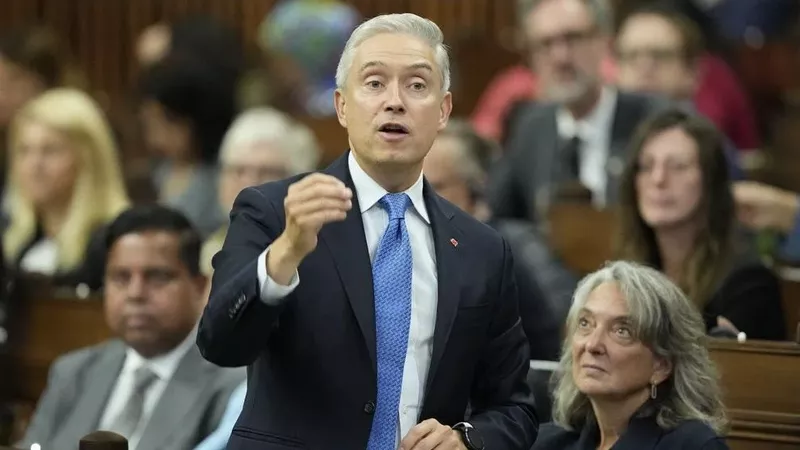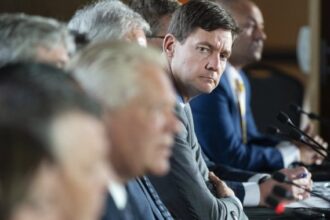As European leaders frantically redraw their energy security blueprints, Canadian Finance Minister Chrystia Freeland embarked on a high-stakes diplomatic tour across the continent last week, positioning Canada as Europe’s trusted partner in critical minerals and energy resources amid escalating geopolitical tensions.
“The world has fundamentally changed,” Freeland declared during her address to business leaders in Brussels. “We’re witnessing a profound realignment of global supply chains where the reliability of your trading partners matters more than ever before.”
The minister’s European mission follows months of behind-the-scenes negotiations as western nations scramble to reduce dependencies on authoritarian states for essential resources. This shift comes at a critical juncture when European nations face mounting pressure to secure stable energy supplies following Russia’s actions in Ukraine and growing wariness about Chinese dominance in critical mineral supply chains.
During meetings with counterparts in Germany, France, and Belgium, Freeland emphasized Canada’s vast reserves of lithium, cobalt, nickel, and rare earth elements—components essential for everything from electric vehicle batteries to advanced defense systems. According to Natural Resources Canada, the country holds an estimated 14% of the world’s rare earth deposits, yet currently produces less than 1% of global supply.
“We’re not just offering resources; we’re offering certainty,” Freeland told reporters in Berlin. “When you partner with Canada, you’re dealing with a country that respects the rule of law, environmental standards, and workers’ rights.”
Industry analysts note this diplomatic push aligns with Canada’s recently announced Critical Minerals Strategy, which earmarked $3.8 billion to accelerate domestic mineral production. David Morrison, chief economist at RBC Capital Markets, called the timing “opportune” as European manufacturers face increasing pressure to secure ethical supply chains.
“The economics have shifted dramatically,” Morrison explained. “Premium pricing for ethically-sourced materials is becoming standard as companies respond to both regulatory requirements and consumer demands.”
Not everyone views Canada’s resource diplomacy with unqualified enthusiasm. Environmental groups have raised concerns about potential ecological impacts of accelerated mining operations. Sarah Thornton from the Canadian Environmental Coalition cautioned that “fast-tracking projects shouldn’t mean compromising environmental safeguards.”
Indigenous leaders, meanwhile, insist on meaningful consultation. Grand Chief Wilton Littlechild emphasized that “any development on traditional territories must proceed with proper consent and partnership with First Nations.”
Despite these challenges, European officials have responded positively to Canada’s overtures. German Economy Minister Robert Habeck characterized the discussions as “substantive and promising,” noting that diversification of critical mineral sources represents a national security priority for his country.
The European Commission recently proposed a Critical Raw Materials Act that would require 10% of strategic minerals to be mined within EU borders, with an additional 40% processed locally. This creates a clear opening for Canadian suppliers who can offer both raw materials and processing capabilities that meet EU standards.
For Canadian mining companies, the diplomatic initiative presents unprecedented opportunities. The Toronto Stock Exchange has seen mining stocks climb an average of 12% since the minister’s European tour was announced, reflecting investor optimism about potential new markets.
As traditional geopolitical alliances undergo realignment, Canada’s resource wealth is becoming an increasingly valuable diplomatic asset. The question remains: can Canada balance the competing demands of rapid resource development, environmental protection, and Indigenous rights while delivering on its promises to European partners in an increasingly fractured global economy?
















